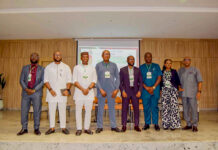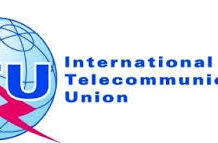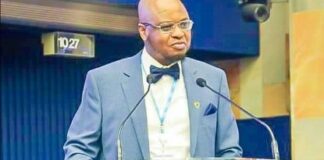*Customs and the Digital Turn in Excise Oversight*
*By Abdulsalam Mahmud,*
In recent years, the Nigeria Customs Service (NCS) has steadily repositioned itself as more than a revenue collection agency. It has taken on the role of reformer, digitiser, and moderniser, reshaping the way trade and excise duties are managed across the nation.
The latest stride in this transformation is the automation of the Excise Register System, a bold step that reinforces Customs’ place at the forefront of institutional renewal in Nigeria. The story of Nigeria Customs is increasingly one of innovation.
From the automation of clearance procedures to the roll-out of digital platforms that simplify transactions, the Service has demonstrated an awareness that modern governance must be anchored on transparency and efficiency. The new Excise Register System (ERS) is one more signpost along this road of reform.
The pilot phase of the ERS was recently concluded with promising results. For months, Customs engaged in fieldwork, conducted User Acceptance Testing, validated the system’s processes, and trained both officers and excise factory staff.
These painstaking efforts ensured that when the system finally went live, it was not an experiment but a working solution tested under real conditions. Three factories served as the testing ground for this innovation: British American Tobacco Nigeria in Oyo State, International Tobacco Company in Kwara State, and Leaf Tobacco & Commodities Nigeria Ltd in Kaduna.
They were not chosen by chance. Each represents a strategic hub in Nigeria’s excise industry, providing the Service with a strong foundation on which to build the nationwide rollout. The results of the pilot speak for themselves.
At BATN, the system recorded a 75 percent efficiency score during its testing. Across all three sites, Customs successfully integrated production and reporting systems, bringing both management teams and officers into stronger collaboration.
For once, the conversation was not about loopholes but about how to close them. With the ERS now fully operational at the three sites, every excise-related activity—production recording, duty computation, statutory reporting—has been shifted into the digital space.
The era of heavy paper files, missing records, and inconsistent reporting is drawing to a close. In its place comes a transparent, accountable, and technology-driven framework. The benefits are immediate and undeniable. Errors are reduced.
Human interference is minimised. Revenue leakages are plugged. And with a centralised platform, both Customs and the regulated industries can operate with a clarity that strengthens compliance. More importantly, the system signals a cultural shift within Customs itself.
Digitisation is not merely about replacing paper with screens. It is about changing habits, enforcing accountability, and ensuring that officers, manufacturers, and regulators alike understand that the process is bigger than any individual.
The Service has made it clear that the pilot is only the beginning. Lessons drawn from these first factories will form the blueprint for a nationwide rollout. Other excise-regulated industries—including beverages, spirits, and wider segments of manufacturing—are already in line to join this digital transformation.
This aligns perfectly with the broader Trade Modernisation Project that Customs has embarked upon. From clearance processes at the ports to excise operations inland, the Service is building a connected ecosystem where data flows seamlessly and oversight is sharper. Stakeholders are being urged to embrace the reform with open hands.
For manufacturers, the system is not a burden but a safeguard. For government, it is a guarantee of sustainable revenue growth. For Customs itself, it is a validation that reforms, when pursued with consistency, can yield tangible results.
The challenge now lies in expansion and sustainability. Reform projects in Nigeria often stumble when initial momentum fades. But if Customs can sustain the pace, train its officers adequately, and enforce compliance across industries, the ERS may become a landmark case of successful digital governance.
This development also speaks to the vision of Customs leadership, which has consistently emphasised innovation and technology as the foundation of modern administration. In a country where paper trails often become corruption trails, automation stands out as both shield and sword.
It is also a reminder that reforms do not thrive in isolation. They require the cooperation of industry operators, the buy-in of officers, and the support of government. Customs has issued the call for feedback and collaboration, and it remains to be seen how stakeholders will respond.
The ERS represents more than just another software. It is a test of will, discipline, and collective responsibility. If sustained, it could become a model for other government agencies wrestling with the burden of outdated systems and revenue leakages. As the Excise Register System grows from pilot to nationwide adoption, it carries the weight of expectation.
For government, it promises sustainable revenue. For industries, it promises fairness and clarity. For the public, it offers assurance that
accountability is not a lost cause. But beyond figures and reports, this is a story about trust.
It is about restoring confidence in an institution that touches every strand of the economy. It is about proving that reforms can work when the will is strong and the vision is clear. The digital register is not just a system—it is a symbol of what happens when technology and integrity meet in service of a greater good.
In the end, Nigeria Customs has shown that progress is not an accident. It is built, one reform at a time, one system after another, until a culture of accountability takes root. With every automation, the Service is not merely changing its methods; it is writing a new chapter in the story of Nigeria’s governance.
A chapter where the future is not imagined in theory, but lived in practice, and where every transaction echoes a promise: that this country can indeed rise to the height of its possibilities.
*Mahmud, Deputy Editor of PRNigeria, can be reached at: [email protected].*
















